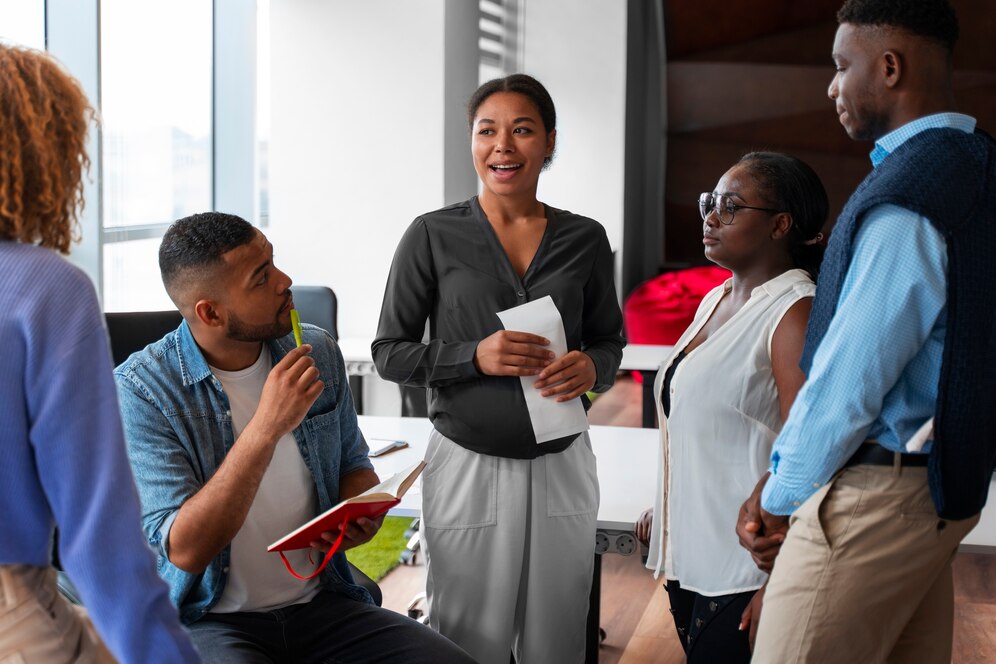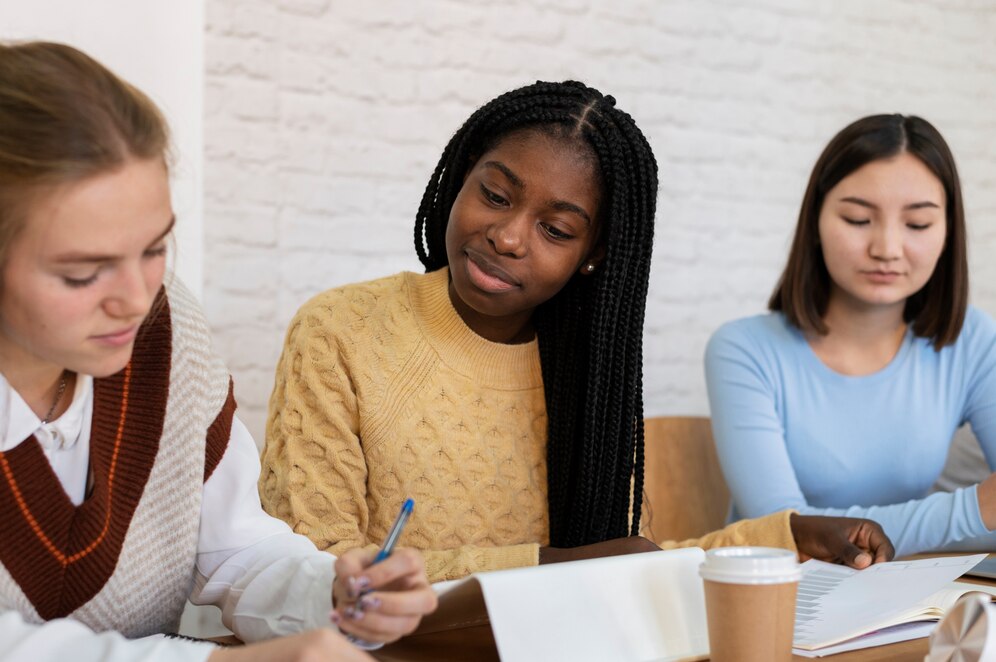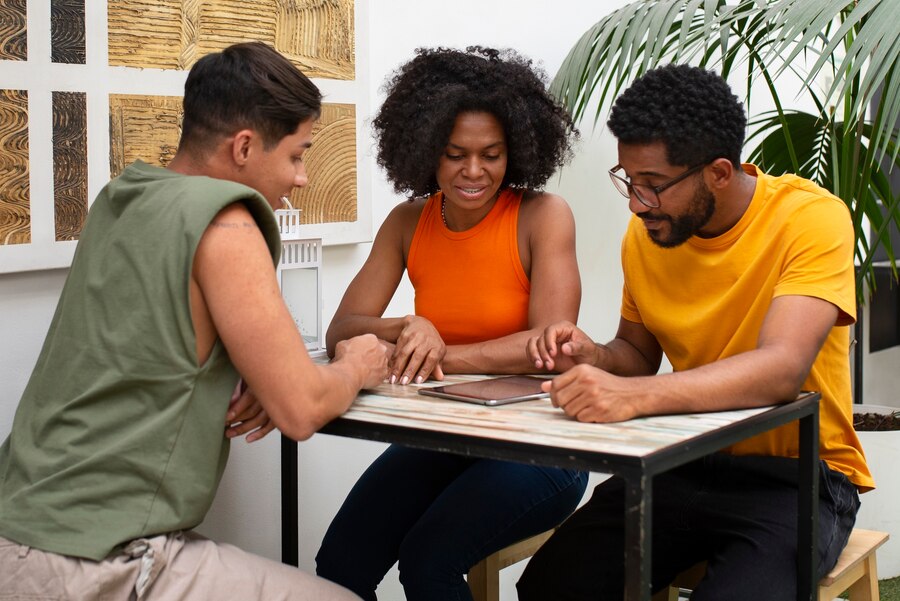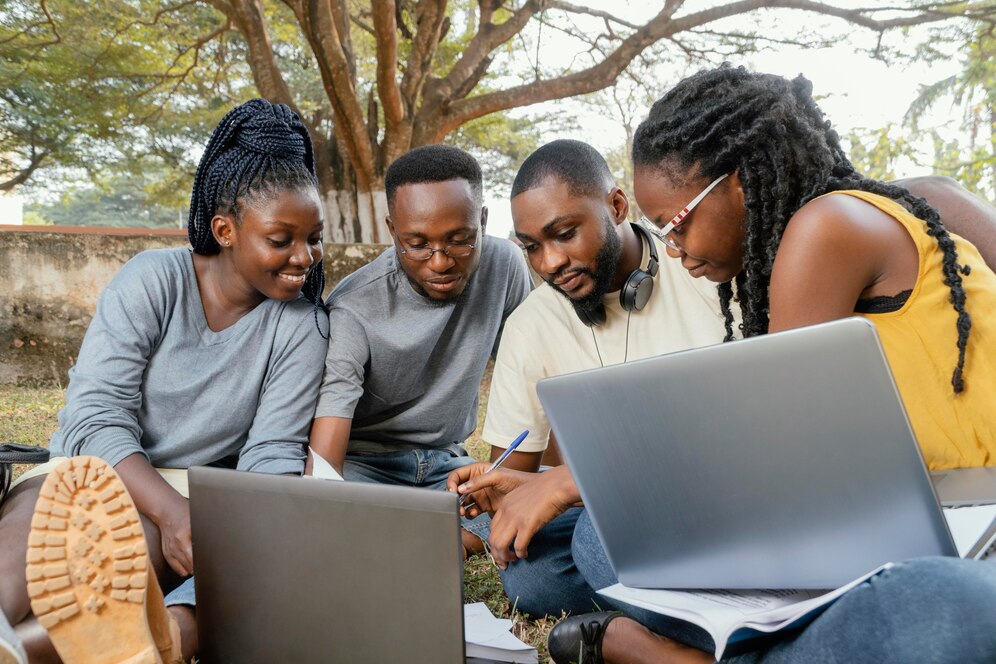Group assignments are a big part of college life. They can be exciting, frustrating, or even a mix of both. As part of a course I am in counseling, I recently worked on a group assignment with six other students. While some were highly engaged and contributed meaningfully, others were completely dormant. This imbalance made the experience both challenging and eye-opening. It became clear that not all group members would benefit equally unless the group had clear structure and collaboration. That experience inspired me to share these 8 tips to help college students make the most of their group assignments.
1. Choose a Group Leader

One of the first steps in ensuring a smooth group assignment is selecting a leader. The group leader is not necessarily the smartest person in the group but someone who can keep things organized, facilitate discussions, and ensure deadlines are met. A good leader helps distribute tasks fairly, encourages participation, and resolves minor conflicts before they escalate. When a leader is chosen early, the group benefits from better coordination, fewer misunderstandings, and a sense of accountability. Leadership in group projects isn’t about control—it’s about guiding the team to success.
2. Set Clear Expectations from the Start

One of the biggest reasons group assignments fail is a lack of clear expectations. Right from the beginning, discuss roles, deadlines, and what each member is expected to contribute. When everyone knows what they’re responsible for, there’s less room for confusion or excuses. A good strategy is to create a shared document listing each person’s responsibilities and setting mini-deadlines along the way. This keeps everyone on track and makes it easier to identify who may need additional support. When expectations are clear, the project flows much more smoothly.
3. Assign Roles Based on Strengths

Not everyone in the group has the same skills, and that’s okay! Some people are great at research, while others excel at writing or presenting. Assign roles based on each member’s strengths to ensure that everyone contributes meaningfully. If someone is creative, they can work on designing slides or visuals. If another person is analytical, they can focus on data collection. By playing to each person’s strengths, you not only improve the quality of work but also increase engagement. When people enjoy their tasks, they are more likely to put in effort.
4. Communicate Regularly

Good communication is the bond that holds a successful group together. Set up a WhatsApp group, a shared document, or schedule regular check-ins to keep everyone updated on progress. Regular meetings (even short ones) can help address questions and keep the momentum going. Miscommunication often leads to incomplete work, duplicated efforts, or last-minute rushes. If a member is falling behind, discussing it early can help them catch up. Open and honest communication fosters accountability and teamwork, making the assignment a collective effort rather than an individual struggle.
5. Be Proactive and Take Initiative
Don’t just sit back and wait for instructions. If you see that something needs to be done, step up and do it. Groups work best when members take initiative rather than waiting for one person to lead all the time. If someone forgets to schedule a meeting, suggest a time.

If a section of the assignment is incomplete, offer to help or delegate tasks accordingly. Taking initiative not only ensures the work gets done but also demonstrates leadership and reliability. When everyone is proactive, the workload feels lighter and the project progresses more smoothly.
6. Hold Each Other Accountable
It’s frustrating when some members don’t pull their weight. Instead of complaining, find ways to encourage accountability. Set deadlines and check in with each other. If someone isn’t doing their part, gently remind them of their responsibilities. A good way to ensure accountability is by having progress updates. For example, each member can report their progress at the beginning of each meeting. This makes it easier to track who is contributing and who needs to step up. Holding each other accountable creates a fair working environment and prevents last-minute panic.
7. Resolve Conflicts Professionally
Disagreements happen, but they shouldn’t derail the entire project. If there’s a conflict, address it calmly and respectfully. Focus on finding a solution rather than blaming each other. Many conflicts arise due to misunderstandings, so clarifying issues early can prevent bigger problems. If tensions run high, consider having a neutral group member mediate. The key is to stay professional and focus on completing the task rather than getting personal. Learning to manage conflicts effectively is an essential skill that will help not just in school, but in professional settings as well.
8. Reflect and Learn from Each Experience

After every group assignment, take a moment to reflect. What went well? What could have been done better? Learning from each experience will help you improve your teamwork skills for the next project. Ask yourself whether you contributed enough or if you could have done more. Reflecting on group experiences helps you grow and develop better strategies for future assignments. Additionally, providing constructive feedback to group members can help them improve as well. A successful group assignment isn’t just about getting a good grade—it’s also about learning valuable collaboration skills for the future.
Final Thoughts
Group assignments don’t have to be a nightmare. With clear communication, accountability, and teamwork, they can be a great learning experience. So the next time you find yourself in a group project, use these tips to make the most of it. Who knows? You might even enjoy it!









